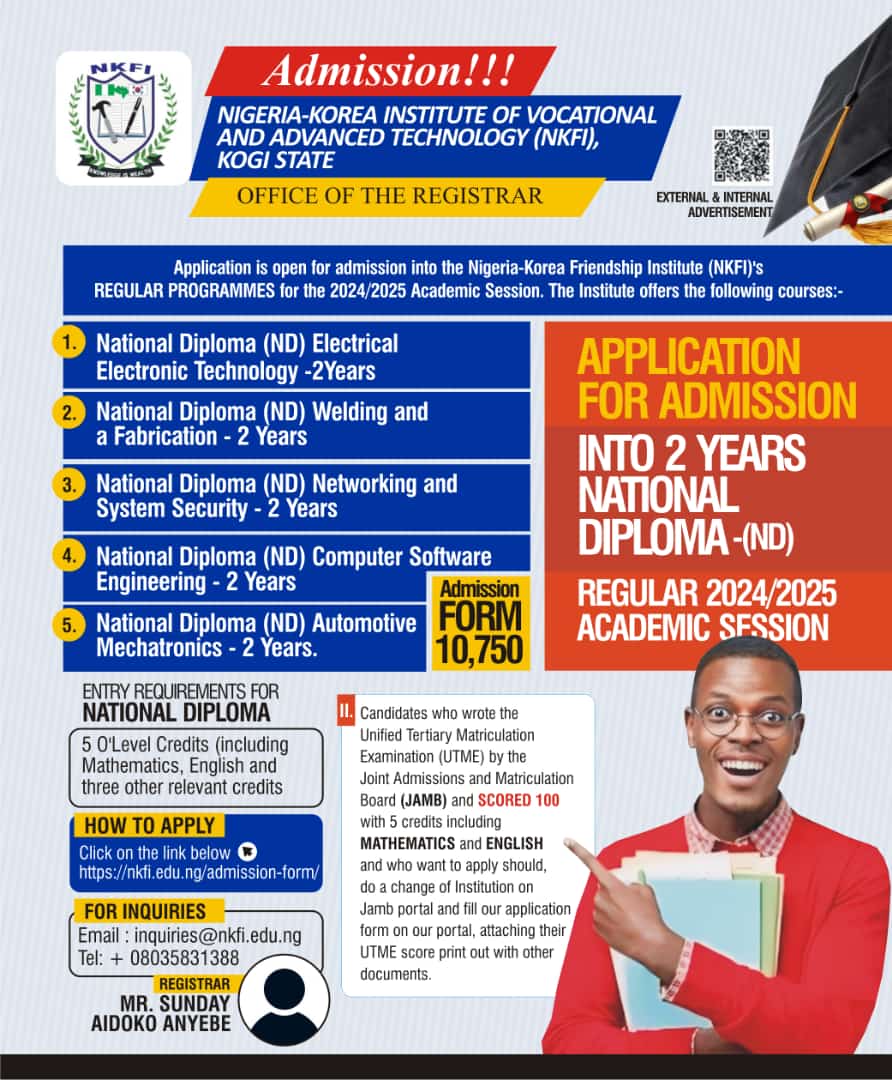Lecturer Calls for Adoption of Digital Anonymous Feedback System to Tackle Sexual Harassment in Schools

By Sunday Obiji, Nigeria
A lecturer with the Department of Mass Communication, Kogi State Polytechnic, Lokoja, Onoja Johnson Baba, has called on government, stakeholders and higher institution owners to adopt what he termed Digital Anonymous Feedback System (DAFS) to tackle the prevalence of sexual harassment in Nigerian higher institutions.
Onoja made the call while addressing the media in Lokoja following the publishing of his study titled “Addressing Sexual Harassment in Nigerian Higher Institutions Through the Feasibility of a Digital Anonymous Feedback System” in the Asian Review of Social Sciences (ARSS) journal, produced by the Centre for Research and Innovation at the Bharath Social and Research Foundation, India, on Tuesday.
The study which highlighted the alarming prevalence of sexual harassment within Nigerian federal universities, calling for the introduction of DAFS to facilitate safe reporting, surveyed 400 students across four federal universities. It revealed that 45% of participants reported experiencing sexual harassment during their university years, with 60% of these incidents occurring on campus. The findings underscore a significant lack of awareness regarding existing reporting mechanisms, as only 30% of respondents were familiar with the formal procedures in place.
According to the study, 45% of the surveyed students reported experiencing sexual harassment during their university tenure, with 60% of these incidents occurring on campus. This statistic underscores the vulnerability faced by students, particularly women, as the data showed that 62.5% of the participants were female. The majority of these incidents involved power imbalances between students and academic or administrative staff, heightening the need for a secure and anonymous reporting platform.
The paper further highlights a troubling lack of awareness surrounding formal reporting channels among university students. Only 30% of the respondents were aware of the mechanisms available for reporting sexual harassment, a figure that mirrors findings from similar studies, such as those conducted by Ezugoh, Egwu, and Okaekwu in 2021. This gap in awareness and access underscores a significant barrier for students who seek justice, as many are left without the knowledge or resources to safely report harassment.
“The existing mechanisms are often bureaucratic, and students fear repercussions, especially if they report incidents involving faculty members,” noted the researcher. “Without effective and trusted channels, victims feel isolated and helpless. It’s crucial to rethink our approach to reporting and accountability,” it says.
The research reveals overwhelming support for DAFS, with 80% of respondents advocating for its implementation. Students indicated that such a system would allow them to report incidents of sexual harassment safely and anonymously, without fear of retaliation. Additionally, 60% of the respondents cited fear of retaliation as a primary concern, while 30% noted stigma, and 10% expressed distrust in existing mechanisms as barriers to reporting harassment.
International case studies, such as Ireland’s “Speak Out” tool, serve as promising examples of how anonymous feedback systems can empower victims while enhancing data collection on the prevalence of harassment. These systems provide victims with an opportunity to safely voice their experiences, contributing to a broader understanding of harassment on campuses. Nigerian universities, advocates argue, could benefit from similar technology-driven solutions to address harassment.
Based on the findings, the study recommends the adoption of DAFS noting that the system would serve as a confidential platform for students to report harassment, ensuring anonymity and fostering a safer campus environment. It also calls for creating platforms for anonymous lecturers reviews, traveling that schools should establish a section on university websites where students can rate and review lecturers as this could deter potential harassers, and that students would also have the option to upload evidence to substantiate claims of harassment.
It also recommends regular training programs and awareness campaigns are recommended to educate students, faculty, and staff on harassment prevention, support services, and reporting procedures.
The researcher urge Nigerian universities to prioritize student safety by implementing these changes, stating that failing to address the issue adequately will only allow harassment to persist and negatively impact students’ educational experiences.
“Students are calling for accountability, and it’s time the institutions listen,” said the researcher. “The introduction of anonymous feedback systems and a cultural shift in reporting practices will be critical in fostering an environment where all students can pursue education without fear of harassment.”
Onoja emphasized that the study aims to guide government and educational institutions in adopting DAFS to create a safer environment for students. He noted the overwhelming support from students for such a system, highlighting that 80% are calling for its adoption and implementation.
The lecturer said he is ready to partner relevant stakeholders, ministries, universities, and technology firms to explore the practical aspects of integrating DAFS into Nigerian higher education.





